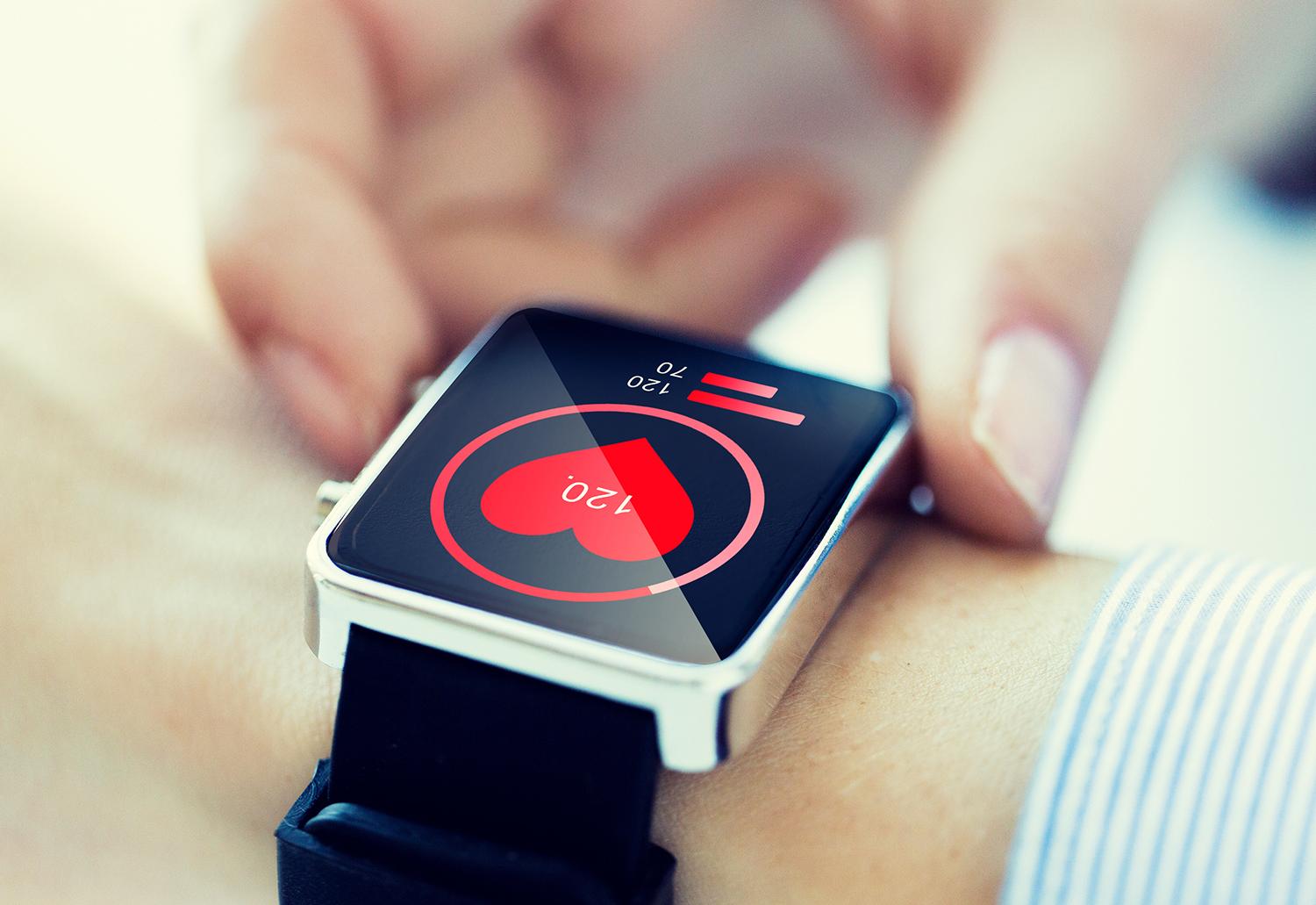Building trust in the benefits of HealthTech

John E. Kaye
- Published
- Home, Technology, Uncategorized

Advocating on behalf of HealthTech, which is the largest sector by employment within Life Sciences, the Association of British HealthTech Industries (ABHI) marked its 30th anniversary last year. In that time our industry has changed significantly, from being product-based, to delivering value-based service solutions and increasingly incorporating new fields of science, utilising data, artificial intelligence, robotics, and nano-materials.
We represent 300 member companies and, as their devices, diagnostics and digital technologies have become increasingly sophisticated, treatment for the likes of cancer and stroke is now quicker and more targeted, supporting improved survival rates and life expectancy.
Yet with the well understood demographic shifts comes a rise in chronic conditions, often perpetuated by diet and lifestyle factors, with increased rates of diabetes and obesity, which are now the primary drivers of strain on over-stretched healthcare systems. We must now predict, identify, diagnose and treat patients in a holistic manner and as early as possible to prevent, manage or halt disease progression.
Maximising opportunities
There will always be a role for the hospital, but with the right use of technology, we can start to look at delivering care in alternative environments, such as the home or workplace. Through monitoring and predictive algorithms, we are positioned to manage our own health, with added focus on prevention and protection, thus, alleviating pressures on health systems.
However, it is not all apps, robots and telemedicine. There are currently over 11,000 digital health employees working in the UK, applying their trade to infrastructure projects, such as hospital and GP information systems. Programmes that will equip services, such as the UK’s NHS, to deliver on what is arguably its prize asset: data. As the world’s largest single health-payer system, the NHS has a rich data pool. Large datasets, utilised effectively, mean three things for care: it can be more predictable, more personalised, and more precise.
This data pool gives us the opportunity to deliver against the four V’s of data – Velocity, Volume, Veracity and Variety. However, this data pool cannot be constructed or utilised without the involvement and agreement of patients. Patient consent to data sharing must be the foundation for any revolution in digital health. We must engage citizens to have an informed public debate on the beneficial uses of health data. This is particularly the case when commercial entities form part of the data cycle. For this reason, ABHI is partnering with relevant organisations to ensure we support the debate on informed patient opt-in.
Research suggests that the public does not, in principle, want their health records being shared with commercial organisations and so appropriate regulation around data security is essential. People must trust that their information is being used appropriately. This underpinning principle must be supported by a regulatory framework that encompasses product, service and data regulation. Data protection legislation provides the framework for sharing of data and further guidance has been provided in the code of conduct for HealthTech from the Department of Health and Social Care. Cloud-based services can help overcome this by providing a route to share anonymised data with entities outside of the consented area. Blockchain/distributed ledgers also have great potential to support sharing of health data, both at an organisational level, but potentially in the future as a basis for personal control of data. And so, whilst GDPR has enshrined the basics of data regulation into law, the sensitivity of health data and its sharing with industry may need further governance to build the trust and reassurance with the public.
Given the complexity of the digital landscape, collaboration is crucial. Developers, researchers, clinicians, users and funders all have a role to play. However, a great idea will remain an idea, if it is not given the necessary support needed to scale through access to capital and the right support to navigate and implement within health systems.
The UK invests heavily in research, and rightly so, but there is much less emphasis on implementation and adoption. ABHI are working to develop networks that promote communication and innovation with a strong direction towards implementation.
There is a role for companies, regulators, patients and providers to come together and design a system of transparency and privacy, that works for everyone. The prospect that digital technologies will make our health system more convenient, more coordinated, and more responsive to consumer needs is enticing. The opportunity for population health management with a focus on healthy living is even more exciting, with a focus on engaged citizens preventing chronic disease and self-managing conditions.
Further information
RECENT ARTICLES
-
 AI-driven phishing surges 204% as firms face a malicious email every 19 seconds
AI-driven phishing surges 204% as firms face a malicious email every 19 seconds -
 Deepfake celebrity ads drive new wave of investment scams
Deepfake celebrity ads drive new wave of investment scams -
 Europe eyes Australia-style social media crackdown for children
Europe eyes Australia-style social media crackdown for children -
 Europe opens NanoIC pilot line to design the computer chips of the 2030s
Europe opens NanoIC pilot line to design the computer chips of the 2030s -
 Building the materials of tomorrow one atom at a time: fiction or reality?
Building the materials of tomorrow one atom at a time: fiction or reality? -
 Universe ‘should be thicker than this’, say scientists after biggest sky survey ever
Universe ‘should be thicker than this’, say scientists after biggest sky survey ever -
 Lasers finally unlock mystery of Charles Darwin’s specimen jars
Lasers finally unlock mystery of Charles Darwin’s specimen jars -
 Women, science and the price of integrity
Women, science and the price of integrity -
 Meet the AI-powered robot that can sort, load and run your laundry on its own
Meet the AI-powered robot that can sort, load and run your laundry on its own -
 UK organisations still falling short on GDPR compliance, benchmark report finds
UK organisations still falling short on GDPR compliance, benchmark report finds -
 A practical playbook for securing mission-critical information
A practical playbook for securing mission-critical information -
 Cracking open the black box: why AI-powered cybersecurity still needs human eyes
Cracking open the black box: why AI-powered cybersecurity still needs human eyes -
 Tech addiction: the hidden cybersecurity threat
Tech addiction: the hidden cybersecurity threat -
 Parliament invites cyber experts to give evidence on new UK cyber security bill
Parliament invites cyber experts to give evidence on new UK cyber security bill -
 ISF warns geopolitics will be the defining cybersecurity risk of 2026
ISF warns geopolitics will be the defining cybersecurity risk of 2026 -
 AI boom triggers new wave of data-centre investment across Europe
AI boom triggers new wave of data-centre investment across Europe -
 Make boards legally liable for cyber attacks, security chief warns
Make boards legally liable for cyber attacks, security chief warns -
 AI innovation linked to a shrinking share of income for European workers
AI innovation linked to a shrinking share of income for European workers -
 Europe emphasises AI governance as North America moves faster towards autonomy, Digitate research shows
Europe emphasises AI governance as North America moves faster towards autonomy, Digitate research shows -
 Surgeons just changed medicine forever using hotel internet connection
Surgeons just changed medicine forever using hotel internet connection -
 Curium’s expansion into transformative therapy offers fresh hope against cancer
Curium’s expansion into transformative therapy offers fresh hope against cancer -
 What to consider before going all in on AI-driven email security
What to consider before going all in on AI-driven email security -
 GrayMatter Robotics opens 100,000-sq-ft AI robotics innovation centre in California
GrayMatter Robotics opens 100,000-sq-ft AI robotics innovation centre in California -
 The silent deal-killer: why cyber due diligence is non-negotiable in M&As
The silent deal-killer: why cyber due diligence is non-negotiable in M&As -
 South African students develop tech concept to tackle hunger using AI and blockchain
South African students develop tech concept to tackle hunger using AI and blockchain



























